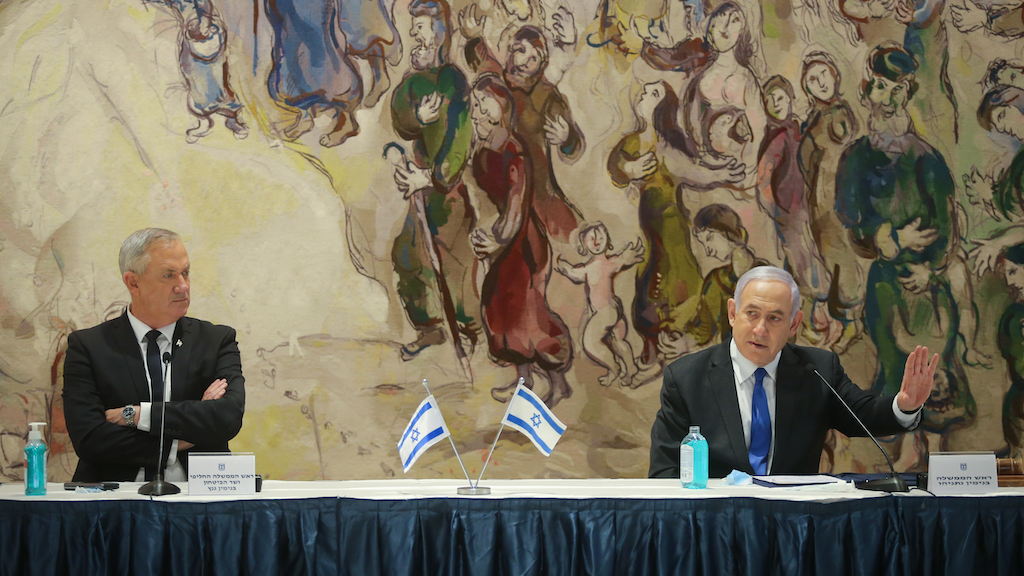Israel’s New Government
On May 17 Benyamin Netanyahu became Israel’s Prime Minister again. This happened after 72 Israeli lawmakers voted in favor of a bill that recommended giving ‘King Bibi’ as his supporters call him the task to form Israel’s next government.
On Thursday May 7th, President Reuven Rivlin officially assigned the task of forming Israel’s next government – Netanyahu’s fifth in a row – to the current Prime Minister, despite indictments for alleged bribery, breach of trust and corruption.
“According to the request of a majority of Knesset members, presented to me today Thursday 7 May 2020 / 13 Iyyar, according to the provisions of Article 10(a) of Basic Law: The Government (2001), and according to the provisions of Articles 10(b) and 10(c) of Basic Law: The Government (2001), I hereby inform you that you have a period of 14 days to form a government,” read the letter sent to Netanyahu and signed by the President.
Leftist political parties such as Meretz and the Movement for Quality Government again filed petitions to the High Court of Justice to strike the coalition deal dictating Netanyahu will become vice-Prime Minister in November 2021 but chances are close to zero they will succeed.
The Israeli High Court of Justice earlier rejected similar petitions demanding the court would disqualify Netanyahu for the task of forming Israel’s next government. The Court ruled there is no legislation that prevents a member of Knesset from forming a government while being indicted.
Netanyahu has performed the impossible after he failed to form a right-wing coalition when the right didn’t obtain the majority of Knesset seats in the third election Israel witnessed in one year.
The magician, as even his opponents now call him, succeeded to break up the Kachol Lavan (Blue and White) party that was founded in March 2019 with only one goal: to dethrone Netanyahu who has been Israel’s PM since 2009. Kachol Lavan, which has only 15 MK’s in the new Knesset, got a large number of minister posts in the new cabinet in exchange for joining the Netanyahu-led government and agreed to sign a rotation deal for the premiership.
Under the deal, Netanyahu will continue to be Israel’s Prime Minister for one and a half years and will then step down after which Kachol Lavan leader, current Speaker of the Knesset and ex-IDF chief of staff Benny Gantz will become Israel’s PM. Gantz changed his mind about Netanyahu after the Corona crisis paralyzed Israel’s economy and society and broke his election promises that he would never sit with the Likud leader in the same government. That decision was necessary, said Gantz, because of the dire state of affairs in Israel where more than 26 percent of the workforce became jobless as a result of the Corona crisis and where whole sectors collapsed.
Telem and Yesh Atid – the other parties who formed Kachol Lavan together with Gantz’ Resilience party – will now lead the opposition. They will be joined by the right-wing Yamina party led by Naftali Bennett that according to Likud sources demanded too many minister posts in the new government.
The other right-wing parties such as the ultra-orthodox Shas and United Torah Judaism (UTJ) will join the new government but Health Minister Ya’acov Litzman of UTJ lost his job as Health Minister. Litzman has been heavily criticized for his role in the Corona crisis because he looked too much to the interests of his own voters, the ultra-orthodox Jews, and initially refused to implement measures aimed at preventing gatherings of people during prayer services. Litzman also failed to expand Israel’s health system which is one of the smallest in the Organization for Economic Cooperation and Development (OECD).
Kachol Lavan leader Benny Gantz now serves as Israel’s Defense Minister until November next year when he will take over from Netanyahu and will become Israel’s PM while the party’s number two Gabi Ashkenazi became Israel’s new Foreign Minister.
The new government has to deal with the implementation of the new peace plan of US President Donald J. Trump that envisions Israeli sovereignty over parts of the so-called C-area in Judea and Samaria as well as the whole Jordan Valley that is deemed Israel’s eastern security belt.






